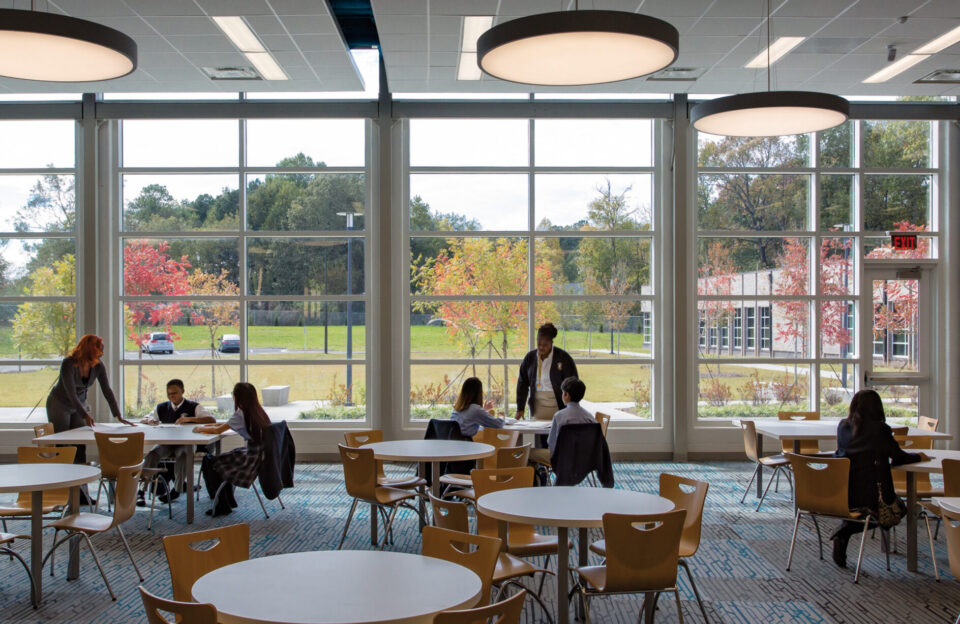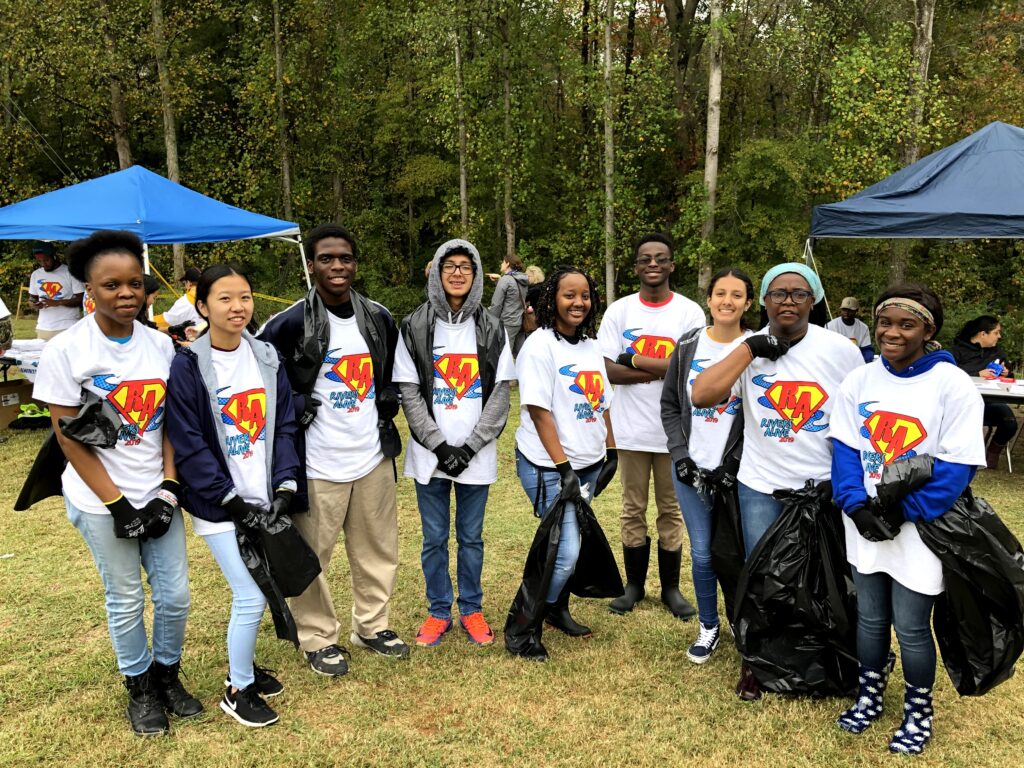Veteran teacher and Advocate cultivates STEM pipeline in Georgia

We need to talk about disparities in STEM. Not only are populations including Black, Latino and women workers chronically underrepresented in STEM fields, but they also face unique and persistent barriers to closing those gaps. We see the impact of these figures across the STEM landscape: in labor markets, in higher education and, yes, even in finalist pools of the Society’s competitions. There are no quick fixes to these inequities, but there are potential solutions and ways that the Society for Science and others are working towards every day to make STEM paths possible for every individual who wants to be a scientist or engineer.
Meet Reshawndra Hutchins-Trapp, a veteran teacher based in Clayton County, Georgia. An educator with twenty years of experience, Reshawndra is passionate about her students and dedicated to connecting them with authentic science experiences to hone their critical thinking and reasoning skills. As a middle school life sciences teacher, her students are often at the outset of their STEM journeys—and in this pivotal time, Reshawndra models an approach to cultivate her students’ interest in STEM in the long run.
If it seems like a big goal to create a diverse STEM pipeline starting in middle school, well, that’s because it is. But in her school and community, Reshawndra is walking the walk. As a Lead Advocate in the Society’s Advocate Program, she aims to close disparities in STEM in her school district. The program provides her with training, stipends and year-round support to provide underrepresented and low-income students in entering science research competitions. Advocates receive training and support from Society staff, a stipend and a paid trip to Washington, D.C., to meet at a weekend-long convening. In other words, the program aims to create a community of support among educators working to change the status quo of STEM gaps in the United States.
As a Lead Advocate, Reshawndra guides her students as well as a cohort of eight other Advocates in the program. In addition to the annual meeting in Washington, the group meets for monthly video calls in which they problem solve, share opportunities for their students and support one another throughout the school year.
“The Advocate Program has been great,” said Reshawndra of her three years in the program. “It has allowed me to connect with teachers across the country and dialogue about STEM in a meaningful and natural way. Being a Lead Advocate has grown my leadership skills and given me the confidence to speak up for my students and community.”
As for many of Reshawndra’s students, their journeys in STEM are still just beginning.

Beyond the classroom, Reshawndra also leads her school’s STEM Club, in which her students gain exposure to careers and post-secondary opportunities in STEM, as well as conduct research projects of their own. Currently her students are completing their projects with an eye toward completing in their science fair and the Junior Science Humanities Symposium. Next on the agenda is her goal of creating a research symposium for students—modeled after conferences in which teachers share learnings and best practices. Together these efforts combine complementary experiences to immerse students in STEM both inside and outside of the classroom.
“Each year I am happy when my students choose a career in STEM,” she reports. “I have several students who have decided to pursue their STEM interests at M.I.T. and Georgia Tech. All of my mentees have chosen some form of STEM whether it’s pure science, allied health or social science. I even have a couple of future science and math teachers in the mix!”
Here at the Society, we couldn’t be prouder to partner with inspired educators like Reshawndra and all her fellow Advocates as they support the next generation of diverse STEM students, teachers and leaders.


